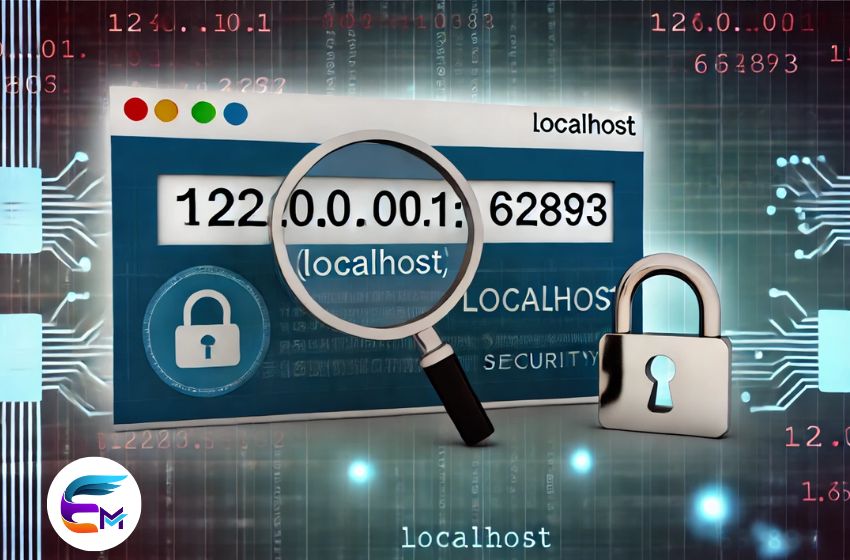127.0.0.1:62893 is a specific instance of an IP address combined with a port number. The IP address 127.0.0.1 is known as the localhost, which is a loopback address used by a computer to refer to itself. The port number 62893 is a specific communication endpoint within the host. Together, 127.0.0.1:62893 represents a unique combination used in networking to establish local connections.
The Importance of 127.0.0.1
The IP address 127.0.0.1 is crucial for network testing and development. It allows developers to run software on their local machines without needing an internet connection. By using 127.0.0.1, developers can ensure their applications are functioning correctly before deploying them to a live environment. This loopback address is a fundamental part of TCP/IP networking, providing a reliable way to test and troubleshoot network applications.
Understanding Port Numbers
Ports are numerical identifiers in networking used to differentiate between various services and processes. Each port number corresponds to a specific service. For example, port 80 is typically used for HTTP, and port 443 for HTTPS. The port number 62893, when combined with the localhost address, signifies a specific process or service running locally on a computer.
How 127.0.0.1:62893 is Used in Development
In software development, 127.0.0.1:62893 might be used to test applications locally. Developers often run web servers, databases, and other services on their local machines using various port numbers. By specifying 127.0.0.1:62893, a developer can access a service running on port 62893 of their local machine. This setup is essential for testing and debugging before deploying software to a production environment.
Common Issues and Troubleshooting 127.0.0.1:62893
Despite its importance, using 127.0.0.1:62893 can come with challenges. One common issue is port conflicts, where multiple services attempt to use the same port. This conflict can prevent applications from starting correctly. To troubleshoot, developers can check which ports are in use and reassign conflicting services to different ports. Additionally, firewalls and security settings may block access to certain ports, requiring adjustments to firewall rules.
Security Considerations
When using 127.0.0.1:62893, security is a key consideration. Although the localhost is not accessible from the internet, it is still important to secure local services to prevent unauthorized access. Developers should ensure that sensitive data is protected and that local services are configured securely. Using strong authentication and encryption can help mitigate potential security risks.
Practical Examples of 127.0.0.1:62893
To illustrate the practical use of 127.0.0.1:62893, consider a scenario where a developer is building a web application. They might run a local web server on port 62893 and access it through the browser by navigating to 127.0.0.1:62893. This setup allows the developer to test the application locally, making changes and debugging issues in real-time without impacting the live site.
Best Practices for Using 127.0.0.1:62893
To effectively use 127.0.0.1:62893, developers should follow best practices. These include:
- Regularly checking for port conflicts and resolving them promptly.
- Keeping local services up-to-date to ensure compatibility and security.
- Using clear and consistent naming conventions for services and ports.
- Implementing robust security measures to protect local services from unauthorized access.
Understanding 127.0.0.1:62893 in Networking
In networking terminology, 127.0.0.1:62893 represents a crucial concept known as the loopback address combined with a specific port number. The IP address 127.0.0.1 is universally recognized as the localhost, which allows a device to communicate with itself. This loopback address is invaluable in testing and development scenarios, enabling developers to run and debug applications locally without needing an internet connection.
Practical Application in Software Development
Developers often utilize 127.0.0.1:62893 to test various services and applications. For instance, a web developer might run a local server on port 62893 to test new website features or changes before deploying them to a live server. This local testing environment ensures that the application functions correctly and allows for real-time debugging of errors or issues that arise during development.
Security and Privacy Considerations
While 127.0.0.1:62893 is primarily used for local development and testing, it’s essential to consider security implications. Developers must ensure that services running on localhost are secure and not vulnerable to external threats. Implementing firewalls, encryption, and secure coding practices helps protect sensitive data and prevents unauthorized access to local services.
Troubleshooting and Port Management
Port conflicts can sometimes occur when multiple services attempt to use the same port number simultaneously. Developers must manage ports effectively to avoid conflicts that can disrupt local development environments. Tools and utilities are available to identify and resolve port conflicts, ensuring smooth operation of services on 127.0.0.1:62893 and other localhost addresses.
Future Trends and Developments
As technology evolves, the use of localhost addresses like 127.0.0.1:62893 will continue to play a vital role in software development. Advances in virtualization, containerization, and cloud computing may influence how developers utilize local testing environments. However, the fundamental concept of using localhost for testing and debugging applications locally remains unchanged, proving indispensable in the ever-changing landscape of software development.
Conclusion
127.0.0.1:62893 is more than just a combination of numbers; it is a powerful tool in the world of networking and software development. By understanding its purpose and how to use it effectively, developers can leverage this loopback address and port combination to create, test, and secure their applications. Whether troubleshooting issues, ensuring security, or following best practices, 127.0.0.1:62893 plays a vital role in the development process.

